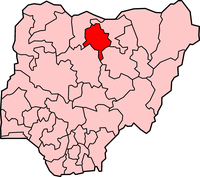Kano state is located in the Northwest geopolitical zone of Nigeria and is bordered by Jigawa, Katsina, Bauchi and Kaduna States. With an estimated population of 9,401,289 inhabitants, Kano state is Nigeria’s most populous state and also has 44 LGAs which include Ajingi, Albasu, Bagawa, Bebeji, Bichi, Bunkure, Dala, Dambatta, Dawakin Kudu, Dawakin Tofa, Doguwa, Fagge, Gabasawa, Garko, Garun Mallam, Gaya, Gezawa, Gwale, Gwarzo, Kabo, Kano Municipal, Karaye, Kibiya, Kiru, Kumbotso, Kunchi, Kura, Madobi, Makoda, Minjibir, Nasarawa, Rano, Rimin Gado, Rogo, Shanono, Sumaila, Takai, Tarauni, Tofa, Tsanyawa, Tudun Wada, Ungogo, Warawa, and Wudil LGAs. The state’s capital is in Kano City while predominant tribes in Kano state include the Hausa and the Fulani. Tertiary Institutions in Kano state include the Bayero University Kano, Federal Collede of Education (Technical) Bichi, Federal College of Education Kano, Kano state polytechnic, Kano state University of Technology Kano, Nigeran Police Academy Wudil, School of Health technology Kano, Kano state College of Education Kumbotso, North west University Kano Muniipal;
Islam and Christianity are the dominant religions while Hausa is the most widely spoken language in Kano state.Popular dishes enjoyed in Kano state include Tuwon Shinkafa, Pate and Miyan kuka. Popular landmarks in Kano state include the ancient city walls, Bayero University, Gidam Makama museum, Challawa gorge dam, Kano Polo club, Bashir Tofa Mosque, Kofar mata dyeing PIT Tiga Dam, Dala hills, Kofar Bagauda and the palace of the Emir also known as Gidan Rumfa.
The Governor of Kano State is Abdullahi Umar Ganduje.
Center of Commerce
Kano state falls under the Sudan Savannah and has two distinct seasons; the rainy and dry seasons with an estimated annual precipitation of 1300 mm.
Kano state also boasts an area of 20,131 km squared with an average temperature of 33 degrees centigrade and humidity of 36 percent.
Kano state prides itself as the centre of commerce with the trade of a wide range of commodities contributing immensely to the state's economy. Markets such as the Kurmi Market, the Kantin kwari market, Dawanau market, Wudil Cattle market, Yan'Lemu market, and the Sabon Gari market attract thousands of merchants and buyers on a daily basis. The state also has a number of industries spanning across the textile, tanning, plastics, ceramics and furniture sectors.
Agriculture is also a major source of economic strength for kano state with the cultivation of crops such as millet, maize, cotton and groundnut earning the state enormous resources. Mineral Resources found in Kano state inlude Prochinre, Cassiterite, Copper, Glass sand, Gemstone, Tantalite, Lead, Zinc, Tin, granite, Quartz, Gold, Pyrite, and thorite.
Kano state was created in May 1967 from the defunct Northern Nigeria region and has an illustrious Emirate spanning several decades with the current Emir being Emir Sanusi Lamido Sanusi (111).
Past governors/ administrators of Kano state include
Audu Bakko- 1967-1975
Sani Bello - 1975-1978
Ishayi Shekari - 1978-1979
Abubakar Rimi- 1979- 1983
Abdu Dawakin Tofa - May 1983- October 1983
Sabo Bkin Zuwo- october 1983- December 1983
Hamza Abdullahi- 1984-1985
Ahmed Muhammed Daku- 1985-1987
Mohammed Ndatsu Umaru- 1987-1988
Idris Garba- 1988-1992
Kabiru Ibrahim Gaya- 1992-1993
Muhammadu Abdullahi Wase - 1993-1996
Dominic Oneya - 1996-1998
Aminu Isa Kontagotra- 1998-1999
Rabiu Musa Kwankwaso- 1999-2003
Ibrahim Shekarau- 2003-2011
Rabiu Musa Kwankwaso- 2011- 2015
Abdullahi Umar Ganduje- 2015 - date
4 based on 0 reviews

Find and explore some of the best businesses in Kano State.
© 2025 Manpower Nigeria. All rights reserved.